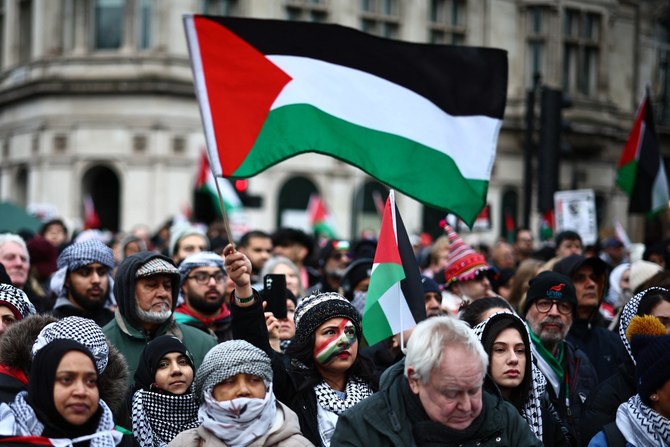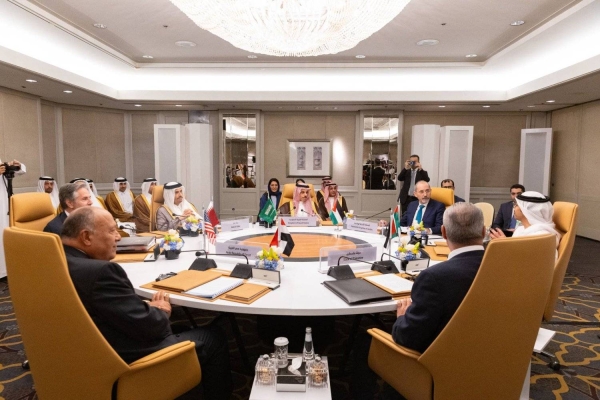
There is a tendency in the pro-Palestine movement to celebrate anything that angers Israel as a major achievement. The movement often overlooks the fact that Israel is a country easily angered. That does not necessarily translate to a tangible benefit for Palestinians — it is more a reflection of how little Israel thinks they deserve.
And so it is with this week’s news that Ireland, Norway and Spain have decided to recognize Palestine, resulting in Israel recalling its ambassadors from those countries. On a symbolic level this is certainly worth celebrating, but it changes nothing on the ground.
People underestimate how many countries already recognize Palestine: three-quarters of the UN’s 193 member states — not much less than Israel, which is recognized by some 85 percent. In fact, recognition of Palestine has been building for decades, since the 1988 declaration of independence, which was acknowledged by UN General Assembly Resolution 43/177. And in 2012, the UNGA granted Palestine non-member observer state status.
The declaration, recognition and UN status have all been celebrated as major milestones, but they have done nothing to stop or even slow Israel’s ongoing erasure of Palestine from the map. These are symbolic moves, and symbolism has limited value. In fact, if symbolism is not even recognized as such, or if its value is overblown, it can be detrimental, contributing to a delusion of progress.
Ireland, Norway and Spain are joining a long and growing list of countries that recognize a state that exists in name only
Sharif Nashashibi
Ireland, Norway and Spain are joining a long and growing list of countries that recognize a state that exists in name only. Due to Israeli occupation, colonization and apartheid, Palestine lacks contiguous, sovereign territory; control over its borders; military, security, legal or administrative control; its own currency; or economic independence. It is a nation entirely held hostage by another, aided and abetted by key Western states, most notably the US.
For recognition of Palestine to make a difference, it needs to be backed by pressure to actually make that state a reality. Otherwise, it is more of a feel-good move than a do-good move. Unfortunately, many states that recognize Palestine have business-as-usual or even close relations with Israel, and that fact is not limited to those in the West.
Beyond just realizing a Palestinian state, pressure must be applied to ensure that it is actually viable. Israeli Prime Minister Benjamin Netanyahu has repeatedly rejected Palestinian statehood outright, but even predecessors who accepted the idea in principle meant something less in practice.
The late Prime Minister Yitzhak Rabin, who was synonymous with the Oslo “peace process,” told the Knesset in 1995 that he envisioned “an entity which is less than a state.”
And writing in the New York Times, Robert Malley — who was at the Camp David talks in 2000, and was special assistant to then-US President Bill Clinton for Arab-Israeli affairs — described the generosity associated with then-Israeli Prime Minister Ehud Barak’s proposal as a “myth,” adding: “It was not the dream offer it has been made out to be.”
Israel will never accept Palestinian self-determination without sufficient pressure, including political, economic and military. Apartheid in South Africa did not collapse because of global sympathy with its Black population. It collapsed because that sympathy was backed by sanctions by countries and international organizations.
The will to apply pressure on Israel has been lacking for so long that even if it was to happen now, its purpose may need to change. Israel’s colonization drive has been so thorough, with its illegal Jewish-only settlements on occupied land so pervasive and entrenched, that a Palestinian state — certainly one that fulfills the proper criteria for a state — may no longer be possible.
As such, the application of pressure on Israel may have to revolve around giving it a choice: a truly viable Palestine in accordance with international law, or like South Africa, Palestinian equality in a single state. Israel and its allies will balk at the latter option, but they are the ones responsible for burying the two-state solution.
Sharif Nashashibi is an award-winning journalist and commentator on Arab affairs.












